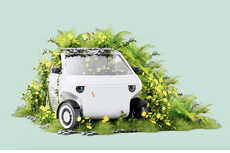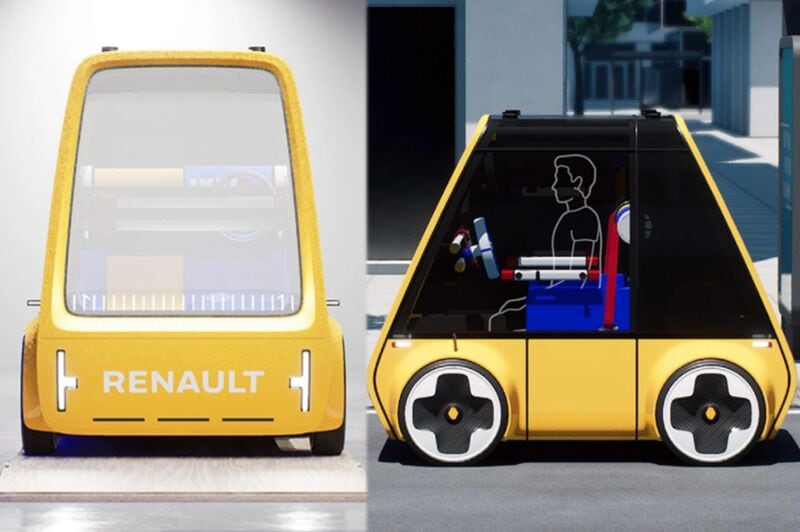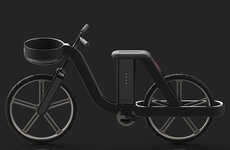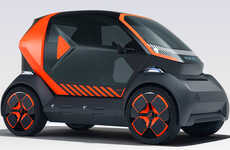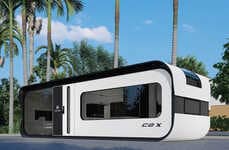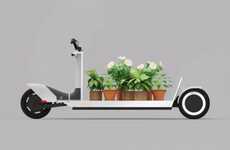
Sustainably Made Vehicle Höga Takes Inspiration from IKEA and Renault
Elena Rahman — May 14, 2021 — Autos
References: yankodesign
Design student Ryan Scholtthauer creates a self-assembly vehicle using IKEA's winning philosophy of production, packaging, and practical use, in combination with Renault's advanced mobility platform. The vehicle is called Höga and takes design inspiration from the classic Bauhaus principle of clean and purposeful design.
Höga considers sustainability from the start of its lifecycle to the end. The vehicle arrives in a reusable crate to cut transportation costs and is reused to ship back broken furniture. With a skateboard platform to house the wheels, Höga's self-assembly can be done by one person in a few hours. At the end of its lifecycle, the vehicle's body is recycled into other products when it no longer functions as it should.
Image Credit: Yanko Design
Höga considers sustainability from the start of its lifecycle to the end. The vehicle arrives in a reusable crate to cut transportation costs and is reused to ship back broken furniture. With a skateboard platform to house the wheels, Höga's self-assembly can be done by one person in a few hours. At the end of its lifecycle, the vehicle's body is recycled into other products when it no longer functions as it should.
Image Credit: Yanko Design
Trend Themes
1. Self-assembly Vehicles - The trend of sustainable transportation options that can be self-assembled at the consumer level presents an opportunity for disruption in the automotive industry.
2. Reusable Packaging - The trend towards reusable packaging in transportation and logistics presents an opportunity for disruptive innovation in materials science and packaging design.
3. Circular Economy - The trend of circular economy thinking in product design and lifecycle management presents an opportunity for disruptive innovation in manufacturing and materials science.
Industry Implications
1. Automotive - The automotive industry can explore opportunities for disruptive innovation by embracing self-assembly and sustainable materials in vehicle design.
2. Packaging - The packaging industry can embrace reusable materials and sustainable design concepts to better serve businesses looking for eco-friendly solutions for shipping and logistics.
3. Manufacturing - The manufacturing industry can explore ways to implement circular economy principles in product design and materials sourcing to minimize waste and create new revenue streams.
5.4
Score
Popularity
Activity
Freshness


